


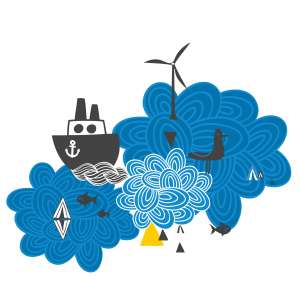
With this session we want to share experiences and strengthen understanding on the role of cumulative impacts in MSP. We will present and discuss work done in Pan Baltic Scope and other recent projects involving cumulative impact assessment. At the end of the session we will formulate recommendations and key actions to further the development of methods and conceptual understanding.
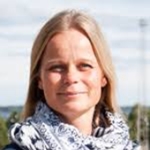
Lead of the Activity on Cumulative Impacts in the Pan Baltic Scope project. She has a PhD in Ecology and a main research focus on marine ecosystems, integrated environmental assessments and ecosystem-based management.
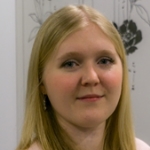
Responsible for the Estonian MSP. She has been working as a GIS specialist and a planner in a consultancy firm.
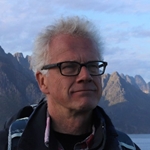
Works on MSP and Cumulative effect assessment to support MSP. He is focussing now on international collaboration regarding cumulative effect assessment for offshore wind energy development. Apart from MSP work he is HOD for the Dutch OSPAR EIHA delegation and co-convener in OSPAR ICG-Eco-C
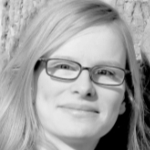
Marie is a Project Coordinator of the DG Mare project SEANSE. She is involved in the revision process of the German MSP and related environmental questions.

Coordinator for the Swedish tool for cumulative impact assessment, Symphony. Marine biological expert in shipping and MSP.
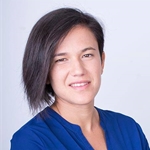
With a background in environmental sciences and specialized in MSP through the Erasmus Mundus Master Course on Maritime Spatial Planning, Cristina has been working in transboundary MSP projects (SIMNORAT and SIMWESTMED) with the Spanish Institute of Oceanography (IEO) and works, nowadays, as data and information consultant for the MSPglobal initiative of IOC-UNESCO.
During the workshop it will be investigated how integrated metropolitan and MSP can be beneficial for resilience of coastal metropolises. Local and regional examples will be presented. BSR cities will share examples from the Nordic – Baltic Space transnational development perspective that includes a macro-regional analysis of the city-regions and experience of port as the interaction area of land and sea and how the spatial relationship should be in place in order to advance the idea of integrated metropolitan planning. In Europe, the city of Vigo represents a successful example of planning integration in between the city and the port infrastructure, similar approaches are also under implementation in the PERSGA region.
All cities and regions will share their experiences on interactions between land and sea, exploring links between MSP, coastal management and urban planning.
During the workshop it will be discussed how integrated metropolitan and MSP can be beneficial for resilience of coastal metropolises. Participants will be invited to share their suggestions on how interactions and synergies among metropolitan and maritime planning could be organized in line with the 2030 Agenda for sustainable development.
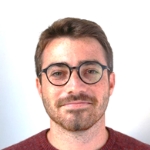
From 2017 he is a research and teaching assistant at the University Iuav of Venice. His research is entitled: “Planning and Design for Seascapes: tools and techniques of planning to support the European directive on Maritime Spatial Planning (MSP) in the Mediterranean”. He is also currently collaborating with CORILA as a Consultant on maritime related projects. His studies and work are focused on European Projects specifically on the themes of MSP, land-sea interactions, ecosystem-based management, ocean governance, community engagement and ocean literacy.
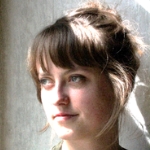
Justine Pantelejeva is a strategic urban planner in the City of Riga. Being responsible of representing Riga in METREX network’s Nordic-Baltic Space expert group, she has focused on macroregional and regional metropolitan area strategic development. One of the contributors to the expert group’s publication “Nordic-Baltic Space Transnational Development Perspective”. She has background in Biology and Spatial Planning, currently studying Urban and Regional Economy.
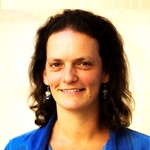
Director of the Institute for Company’s Sustainable Growth (ICSEM). ICSEM contributes to build a sustainable business responsibility towards social, economic and environmental development. ICSEM is a pillar for the Blue Growth Strategies of Vigo and the Port of Vigo. Yolanda is co-funder of the Impact Hub Vigo.
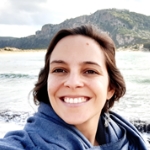
Catarina Frazão Santos is a Research Scientist and Lecturer at the University of Lisbon (MARE-FCUL) and an Invited Researcher at the NOVA School of Business and Economics (Environmental Economics Center). She is a Marine Biologist with a MSc in Ecology and Environmental Management and a PhD in Marine Sciences. After finishing her PhD project about sustainable MSP and ocean policy in Portugal (in a collaboration with the Duke University Marine Lab, US), she focused her research on how MSP can be affected by and adapt to global climate change. She is currently coordinating a 3-year R&D project on the topic (project OCEANPLAN) that counts with an international team of renowned scientists. Catarina has been supporting the European Commission in the H2020 Program for several years, is a Review Editor for Frontiers in Marine Science, and a Lecturer of MSP and Environmental Assessment courses at the University of Lisbon.
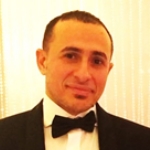
PERSGA is the Regional Organization for the Conservation of the Environment of the Red Sea and Gulf of Aden, is an intergovernmental body dedicated to the conservation of the coastal and marine environments found in the Red Sea, Gulf of Aqaba, Gulf of Suez, Suez Canal, and Gulf of Aden surrounding the Socotra Archipelago and nearby waters. PERSGA’s member states include: Djibouti, Egypt, Jordan, the Kingdom of Saudi Arabia, Somalia, Sudan and Yemen. Mr. Elsayed will present the vision of PERSGA in the context of marine spatial planning and blue economy towards a healthy environment and sustainable economic development of their coastal and marine resources.
Societal benefits of the sustainable use of the ocean are to be accrued through the achievement of the SDG targets as well as other frameworks, it is important to define a number of outcomes that the UN Ocean Decade will address over the course of its implementation from 2021 to 2030.
These outcomes are considered to be highly transformative because they are expected to trigger environmental, societal and policy changes.
The Decade will address both deep disciplinary understanding of ocean processes and solution-oriented research to generate knowledge.
This knowledge will support societal actors in reducing pressures of the ocean, preserving and restoring ocean ecosystems and safeguarding ocean-related prosperity for generations to come.
The Decade should turn the scientific knowledge and understanding into effective actions supporting improved ocean management, stewardship and sustainable development, including marine spatial planning and sustainable blue economy. This Decade will empower decision-makers and planners with Science solutions.
Facilitator: Alejandro Iglesias Campos
Group moderators: Michele Quesada da Silva, Cristina Cervera Núñez, Caterina Fonseca, Marie Colombier, Francesca Santoro.

Pan Baltic Scope brings together national authorities and regional organizations towards coherent national maritime planning in the Baltic Sea region and enhances the lasting macro-regional mechanisms for cross-border MSP cooperation.
CONTACTS
PROJECT LEADER AND COORDINATOR
Ingela Isaksson
Swedish Agency for Marine and Water Management
E-MAIL ADDRESS:
ingela.isaksson@havochvatten.se
MOBILE PHONE NUMBER:
0046 (0)703 662 529
CONTACTS
COMMUNICATION MANAGER
Liene Strazdina
VASAB Secretariat
E-MAIL ADDRESS:
liene.strazdina@vasab.org
MOBILE PHONE NUMBER:
+371 29 703 572